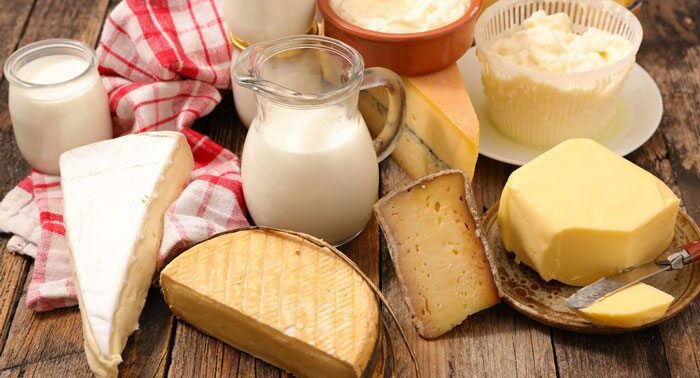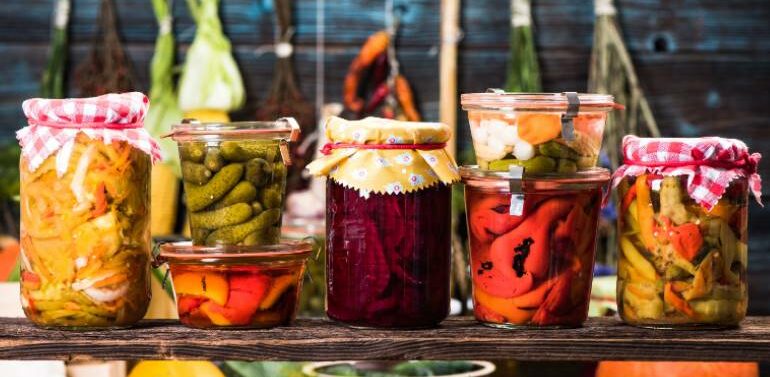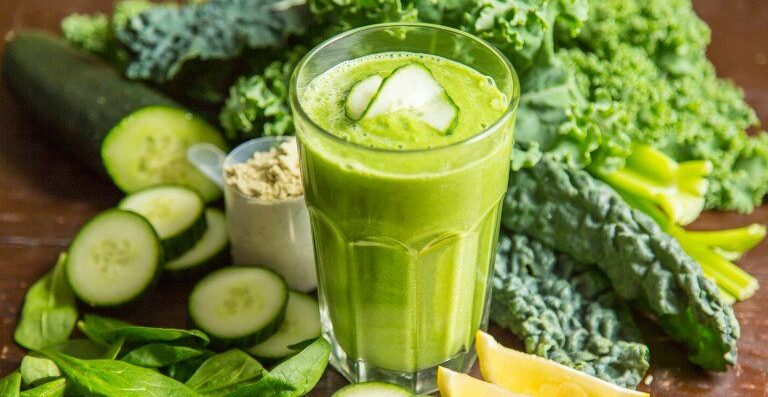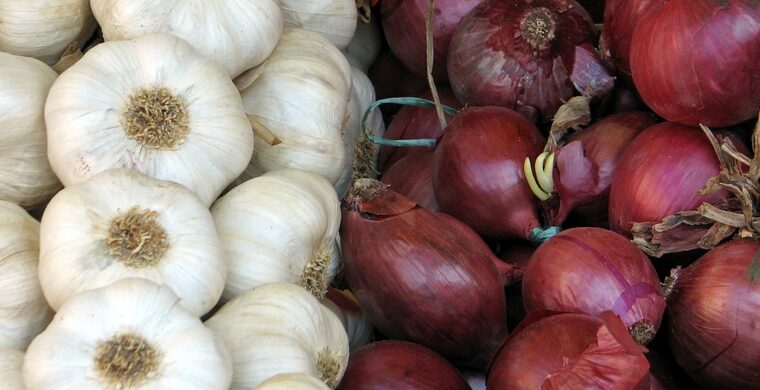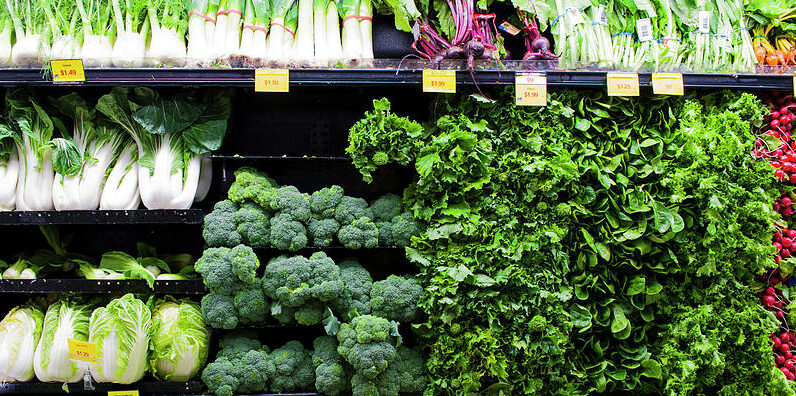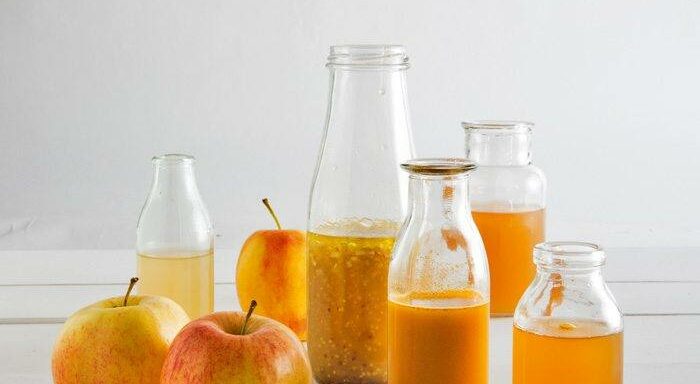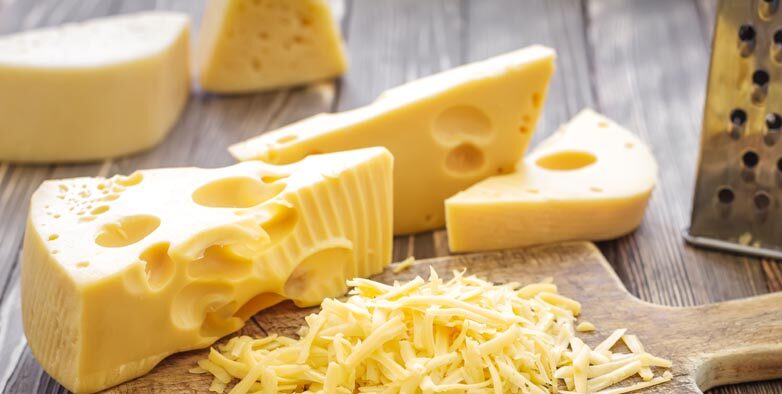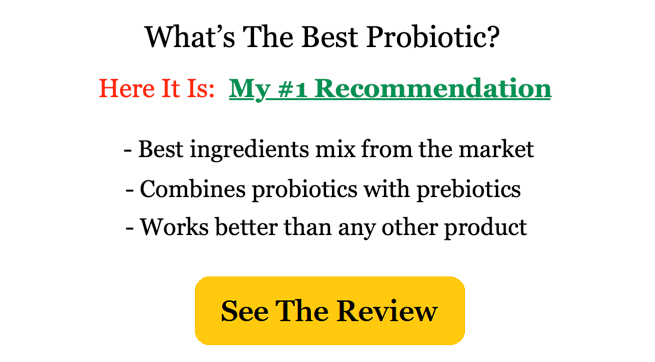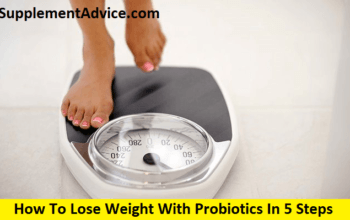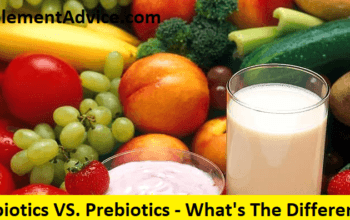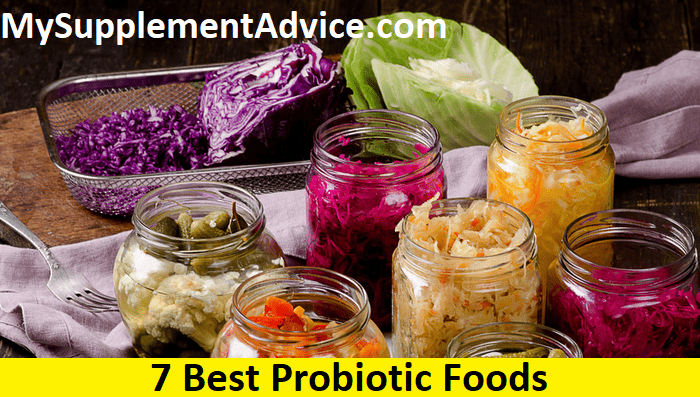
Have you ever thought about improving your health?
Maybe you just want the benefits of probiotics…
Well, it's time to try a probiotic-rich diet.
But what are the best ways to eat more probiotics?
Well, this guide brings you the 7 best probiotic foods you can try anytime.
Note: The following recommendations are based on my research + personal insights on probiotics.
#1 – Dairy
Do you have any milk at home?
Or maybe you are more of a yogurt fan.
Well, these two foods are very probiotic-rich.
In fact, dairy products are one of the most popular probiotic sources:
- Excellent for health and wellness.
- Supply your body with a good amount of probiotics.
- Contain the same good bacteria from your gut microbiome.
- Are a good vehicle for probiotics delivery.
In other words – they are great for making sure the probiotics you consume get straight into your gut.
Dairy products improve microflora balance in the gut.
Plus, these products are easily accessible in your nearest stores.
Now, there are also different types of dairy you can try anytime.
However, there are some specific ones (that are more concentrated).
Include these probiotic-rich items on your list next time :
- Cheese (cheddar, feta, gouda, mozzarella, swiss)
- Ice Cream (fermented and non-fermented products) [1]
- Yogurt (frozen yogurt, greek yogurt, low-fat yogurt)
- Probiotic Drinks (buttermilk, kefir, kombucha)
- Sauerkraut
I bet that you already heard of some of these products before.
So the next time you see them in the shot, don't hesitate to try them out.
SUMMARY
Probiotics are essential for your health and well-being.
Dairy products are one of the most popular sources of probiotics.
They come in many different forms and they are easily accessible.
#2 – Fermented Foods
Fermented foods are unique in their own way.
They are special in the sense that they are made to stay fresh longer.
At the same time, this process makes them good for hosting good bacteria.
If you are unfamiliar with fermented foods, here's more about them:
- They underwent a process called fermentation.
- This process promotes the growth of healthy bacteria.
- Most fermented items are excellent sources of probiotics.
- They provide a lot of general health benefits [2].
- They also help gastrointestinal (GI) or gut health.
Probiotics found in fermented foods can help you modify your gut's pH levels.
Having an ideal pH is important in preventing harmful bacteria.
A healthy gut will keep your overall health in great shape
For your convenience, you can try the following fermented foods:
- Green Olives
- Kimchi
- Miso
- Tempeh
- Natto
What I really recommend to you is to learn how to ferment foods at home.
You can master this process (with the right materials).
Do you know that common quote “Nothing beats homemade”?
SUMMARY
Fermented foods are products that undergo fermentation.
These probiotic-rich foods are meant to stay fresh for longer periods of time.
#3 – Smoothies
Nothing beats a fresh smoothie on a hot day.
When I say smoothies, I mean those made with the right natural ingredients.
They can help you stay healthy and refreshed:
- Smoothies can be made with probiotic-rich ingredients.
- You can also use vegetables and fermented products.
- They serve as a great source of bacterial strains.
- Plus, they contain some essential minerals and vitamins too.
- Lastly, they provide a number of health benefits.
These smoothies hold a lot of both nutrients and probiotics.
That's why they tend to make you generally healthy.
If you have any gut issues, smoothies can also reduce digestive discomfort.
Smoothies are very accessible too – and I suggest making them at home:
- Get a cup of kefir/low-fat probiotic milk, a cup of avocado fruit, and one tbsp of chia seeds.
- Combine them with honey or brown sugar in a blender.
- You may add an inch of fresh ginger.
- Put on some ice cubes for additional refreshment.
This is just one recipe that you can try anytime.
I included an ingredient that is rich in both probiotics and prebiotics (avocado).
That's because prebiotics are known to increase probiotic efficacy.
SUMMARY
Probiotic-rich smoothies are both healthy and refreshing.
You can make your own smoothie at home.
Using probiotic-rich items and natural ingredients is recommended.
#4 – Onions & Garlic
When it comes to cooking, the chances that you're already using these 2 ingredients are huge.
That's because onions and garlic are known to have some key health benefits.
Aside from their unique scent and taste, they are also sources of probiotics.
Here's how onions can help:
- Contain crucial compounds for health.
- Rich in both probiotics and prebiotics that help with a healthy gut.
- Filled with both minerals and vitamins.
- Have a fair amount of flavonoids with anti-inflammatory effects.
- Can be a source of antioxidants.
For garlic, here's what you might want to know:
- Like onion, garlic has some key compounds.
- Contains prebiotics (that can help probiotics be more effective).
- Has anti-bacterial abilities that inhibit harmful bacteria growth [3].
- Has antibiotic properties.
Notice that both onion and garlic are rich in prebiotics.
It is important to know that prebiotics are what make probiotics more effective.
That's because prebiotics are special fibers that act as food for good bacteria.
There are a number of ways to use these two natural ingredients:
- Salads
- Sauces and dressings
- Vegetable smoothies
- Cooking meals (sauteing, grilling, caramelizing)
At the end of the day, you will surely make use of these natural ingredients.
It is best to consume them fresh (not overcooked) to make the best of their benefits.
SUMMARY
Onion and garlic are natural ingredients that have lots of uses.
Both are rich in prebiotics.
These prebiotics act as food for probiotics.
#5 – Green Veggies
There is good a chance you are here because you want to be healthy.
If you are so determined, prepare to eat more green veggies.
I know that's not the first time you hear this – but they are really helpful:
- Green vegetables are one of the most nutritious natural foods out there.
- Contain hundreds of species of beneficial bacteria.
- Jampacked with nutrients, prebiotics, and probiotics.
- Super rich in prebiotics that help sustain your probiotic supply.
- Leafy green veggies are known to boost good bacteria in the gut.
Fresh green vegetables are a reliable source of prebiotics and probiotics.
If you are supplementing with probiotics, prebiotics are also a must.
Meanwhile, fermented and pickled green veggies are probiotic-concentrated.
For more probiotics, I suggest trying out fermented and picked green veggies:
- Cabbage (sauerkraut)
- Cabbage and radish (kimchi)
- Cauliflower
- Green beans
- Whole cucumbers
I understand that vegetables are not for everyone's taste.
If you are one of those, I would still encourage you to embrace green veggies.
You can just start with some minimal amounts – until you get used to them over time.
SUMMARY
Green veggies contain lots of harmless bacteria.
They are natural sources of prebiotics and probiotics.
Fermented green veggies are widely known to be probiotic-rich.
#6 – Balsamic & Apple Cider Vinegar
Being more health-conscious means trying a number of alternatives.
The same can be said when considering probiotics.
These types of vinegar can provide some adequate probiotics.
If you have not heard of them before, balsamic vinegar is:
- A type of flavored vinegar that is slightly sweet and darker.
- Made from unfermented grape juice.
- Rich in Acetic Acid (that has probiotic strains).
On the other hand, apple cider vinegar is:
- A different kind of vinegar made from crushed apple juice.
- Boosted with natural nutrients and probiotics.
- Based on 2 specific strains: Lactic Acid Bacteria and Acetic Acid Bacteria.
These 2 types of vinegar bring in a lot of advantages.
They are widely used for cooking and medicine.
But what makes them really beneficial is that both are rich in active probiotics.
You might want to look at the benefits of these two unique types of vinegar:
- Support weight loss.
- Soothe digestive problems.
- Improve gut health.
- Boost immune system function.
- Enhance overall health.
What I suggest is that you use balsamic or apple cider vinegar in your salad dressings.
You can also try to drink apple cider vinegar in the morning (just before meals).
Just don't forget to dilute it with enough water.
SUMMARY
Both apple cider and balsamic vinegar have active probiotics.
They make an excellent source of probiotics overall.
#7 – Cheese Variants
There is a common saying that cheese can make everyone happy.
Well, it's not just yummy, but it's also healthy.
So if you are a cheese enthusiast, this tip is for you:
- Cheese is made from milk, rennet, enzyme, and helpful bacteria.
- Based on a study, it's a vehicle for probiotic cultures [4].
- Its low-acidic and high-fat texture helps to preserve good bacteria.
- This results in more good bacteria reaching the gut.
- Natural cheese is also rich in nutrients (proteins, fats, minerals).
Cheese is filled with good bacteria.
This gives it a lot of real benefits for your health.
Note that there is a wide variety of cheese out there – and not all of them are that useful.
Here is a list of the best cheese (in terms of nutrients and probiotics):
- Aged Cheddar
- Cottage Cheese
- Feta
- Gouda
- Gruyere
- Swish
Obviously, there are more kinds of cheese that you can choose from.
If I were you, I would go for those varieties that are aged-traditional.
They tend to be more nutrient and probiotic-dense than others.
SUMMARY
Cheese is one of the best sources of probiotics.
Aged-traditional cheese contains the highest density of probiotics, so they make my top pick.
Best Probiotic Supplement
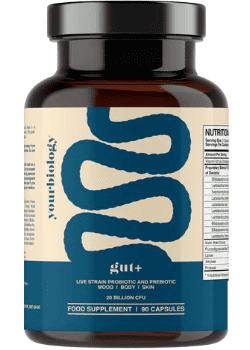
However, opting for supplements can also provide an adequate intake.
Probiotic supplements can reinforce your good bacteria.
Of all the products out there, Your Biology Gut+ is what I recommend the most:
- Based on one of the most powerful probiotic formulas.
- Contains a variety of active probiotics (10 bacterial strains).
- Comes with high doses of most ingredients.
- Only requires one pill daily.
- Really affordable for its quality standards.
- Offers a 60-day money-back guarantee package.
The advantage you get from this product is that it has a prebiotic, vitamins and enzymes.
If you can remember, prebiotics are crucial for probiotics' effect.
Prebiotic fibers are special foods that help good bacteria flourish in your gut.
Your Biology Gut+ is clearly better than most supplements:
- Considered a high-quality probiotic supplement.
- Has a very concentrated dosage (20 billion CFU).
- Made with unique encapsulation technology.
- Huge rate of satisfied users back it up.
It has a gentle yet effective formula which makes it a good maintenance probiotic.
Or you can also choose a less concentrated product.
SUMMARY
Taking supplements can reinforce your probiotic supply.
Your Biology Gut+ is the best probiotic supplement.
It probably has the best formula among all probiotics out there.
Plus, it comes with a 60-day money-back guarantee.
My Final Thoughts
Without a doubt, your army of good bacteria has a lot to offer.
Make sure that you prioritize getting probiotics by:
- Eating more dairy products.
- Trying fermented foods.
- Making your own smoothies.
- Including onion and garlic in your meals.
- Adding more green veggies to your diet.
- Trying out balsamic and apple cider vinegar.
- Consuming different kinds of cheese.
- Picking Your Biology Gut+.
Having the right amount of beneficial bacteria will make you healthier than ever before.
Switching to a probiotic-rich diet will help.
But it's best to take a high-quality supplement too.
This will also you to keep your optimal health in the long run.
References:
1 – https://scialert.net/fulltext/?doi=ijds.2012.1.10
2 – https://pubmed.ncbi.nlm.nih.gov/fermented
3 – https://www.ncbi.nlm.nih.gov/pmc/articles/PMC
4 – https://www.proquest.com/openview/

